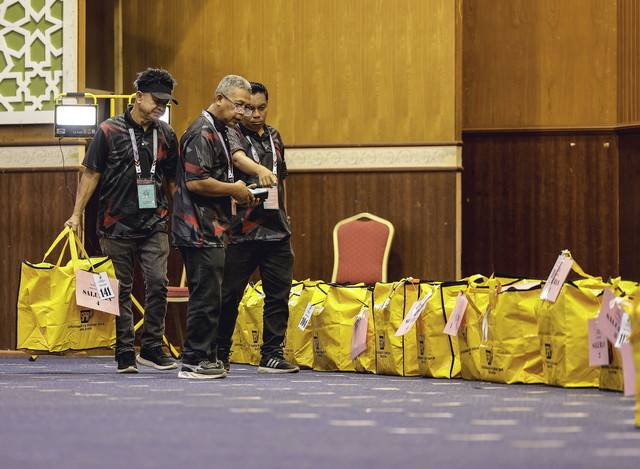Is there a need to increase number of Parliament seats to 300?
RAIHAM MOHD SANUSI, NURUL HUDA HUSAIN, DIANA AZIS AND NURATIKAH ATHILYA HASSAN
SHAH ALAM - The significant increase in the number of voters, along with the uneven distribution of voters in the 222 parliamentary seats is one of the reasons why various parties are urging the government and the Election Commission (EC) to conduct a redelineation process of parliamentary constituencies before the 16th General Election (GE16).
For instance, the Parti Amanah Negara (Amanah) National Convention held on Sunday witnessed over 300 representatives unanimously supporting a proposal for a redelineation to ensure a fairer voter ratio among parliamentary constituencies.
There was also a suggestion for the EC to reevaluate the status of parliamentary constituencies with over 100,000 voters and to add new seats.
According to the EC's website, currently, there were at least 85 parliamentary constituencies with more than 100,000 voters.
If these were divided into two constituencies each, it would increase the number of parliamentary seats from 222 to 307.
Sunway University political analyst Professor Wong Chin Huat said he believed that a redelineation process was necessary following an increase of over six million new voters due to the implementation of the automatic voter registration and Undi18.
However, he said redelineation did not necessarily required an increase in parliamentary or state assembly seats unless it aimed to equalise the number of voters in the respective states.
He said Article 113 and Schedule 13 of the Federal Constitution did not specify the ideal size of voters for each constituency.
"What is emphasised is electoral constituencies are in the same state and the number of voters must be 'approximately equal' based on Subsection 2(C) under Schedule 13.
"For example, in April 2023, Bangi had 311,499 voters while Sabak Bernam had only 51,842 voters, which means that the number of voters in Bangi is more than six times that of Sabak Bernam.
"This contravenes the Constitution unless we consider 'six is roughly equal to one'. The Malay youths will also be at disadvantage as their voting power is low," he told Sinar.
The last redelineation of electoral constituencies was conducted in March 2018, before GE14.
Wong added that redelineation of electoral constituencies can only be done under three conditions which were the regular redelineation, changes in the number of parliamentary or state assembly seats and changes in state boundaries, such as the formation of Putrajaya in the past.
He said regular redelineation was carried out to comply with the requirements of Schedule 13, especially when the number of voters within the state was almost equal.
He also pointed out that it could only be done at least after eight years, following the last study report submitted to the Prime Minister by the EC, with no maximum time limit.
"For the redelineation process due to changes in the number of parliamentary or state assembly seats, there is no restriction on the time frame.
"It must be completed within two years after the change in the number of seats takes effect, involving the relevant state," he explained.
Meanwhile, former EC chairman Tan Sri Abdul Aziz Mohd Yusof said a redelineation process involving an increase in seats required a constitutional amendment and must be approved by two-thirds of members of Parliament or assemblymen.
"If the area is too large or has too many voters, an increase in seats can be proposed either at the parliamentary or state assembly level.
"When it happens, a constitutional amendment is needed and must obtain the approval of two-thirds of the representatives.
"If the proposal to increase seats is brought to Parliament or the state assembly but is not approved, then it is of no use," he said.
Previously, former deputy minister in the prime minister's department (law and institutional reform) Ramkarpal Singh announced that the redelineation process in Sarawak had begun this year, involving a two-year study by the EC.
He said the process for electoral constituencies in Sabah would commence in 2025, while in Peninsular Malaysia, it was scheduled for 2026.
However, the opposition was somewhat skeptical and Perikatan Nasional (PN) chairman Tan Sri Muhyiddin Yassin in July claimed that the unity government would amend the Federal Constitution to increase the number of electoral constotuencies to 300 if it held a two-thirds majority and conducted a redelineation that would only benefit the government by transferring voters.









